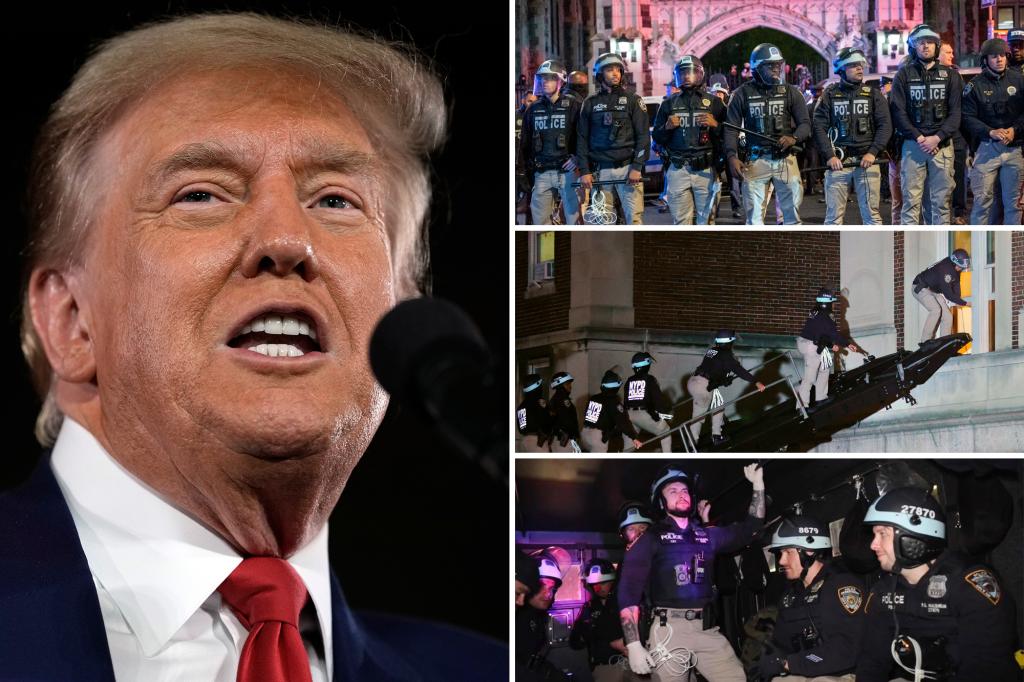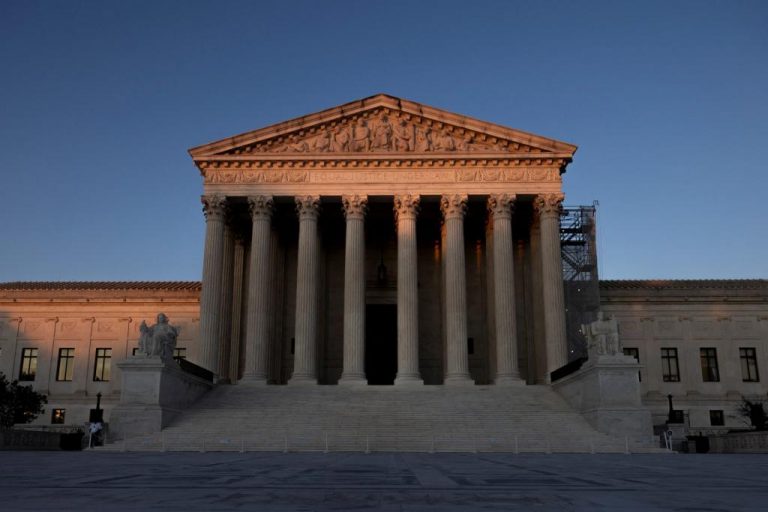Trump praises NYPD for arresting anti-Israel protesters at Columbia University.
President Donald Trump commended the New York Police Department (NYPD) for arresting anti-Israel protesters at Columbia University, describing it as a “beautiful thing to watch.” The incident occurred during a speech by the university’s conservative student group, where chaos erupted as a group of pro-Palestinian protesters disrupted the event.
The protesters reportedly held up Palestinian flags, chanted slogans, and attempted to drown out the speaker, causing a disturbance that led to their removal by the NYPD. President Trump took to Twitter to express his approval of the police action, praising them for swiftly addressing the situation and maintaining order on the campus.
Trump’s endorsement of the NYPD’s actions sparked a debate among social media users, with some applauding the president for supporting free speech and condemning disruptive behavior, while others criticized his response as an attack on the protesters’ right to express their views.
The incident at Columbia University is the latest in a series of clashes between pro-Israel and pro-Palestinian groups on college campuses across the country. Tensions have been running high as students and faculty engage in debates over the Israeli-Palestinian conflict, with both sides advocating for their respective positions while accusing the other of promoting hate speech.
As the situation escalates, campus administrators are faced with the challenge of maintaining a balance between protecting free speech and ensuring a safe and inclusive environment for all members of the university community. The Columbia University protest highlights the complexities of addressing controversial issues on college campuses, where diverse opinions and beliefs often clash, leading to heated confrontations.
In response to the incident, the Columbia University administration issued a statement condemning the disruption of the event and reaffirming its commitment to fostering open dialogue and respectful debate on campus. The university emphasized the importance of allowing different perspectives to be heard while also upholding the principles of civility and mutual respect.
Meanwhile, pro-Palestinian activists have criticized the university’s response, accusing the administration of stifling dissent and siding with pro-Israel groups. They argue that the protesters were exercising their right to peaceful protest and should not have been forcibly removed from the event.
The clash at Columbia University reflects broader political divisions in the United States over the issue of Israel and Palestine, with supporters of each side passionately advocating for their beliefs and challenging those who hold opposing views. The incident has reignited debates over freedom of speech, political activism, and the role of law enforcement in maintaining public order.
As tensions continue to simmer on college campuses and in the broader society, the role of law enforcement agencies like the NYPD in responding to protests and maintaining public safety remains a contentious issue. Critics argue that police actions can sometimes escalate tensions and infringe on protesters’ rights, while supporters maintain that law enforcement is necessary to ensure public order and protect the rights of all individuals.
In the midst of these debates, President Trump’s praise for the NYPD’s handling of the Columbia University protest has added fuel to the fire, further dividing public opinion on the appropriate response to disruptive demonstrations and political activism. The incident has become a lightning rod for discussions on free speech, academic freedom, and the boundaries of protest in a democracy.
As the dust settles on the Columbia University protest, the implications of the incident are likely to reverberate throughout the country, prompting renewed scrutiny of how colleges and universities address contentious issues and maintain a balance between free speech and public safety. The clash between pro-Israel and pro-Palestinian groups at Columbia University serves as a reminder of the challenges of navigating political controversies in an era of heightened polarization and impassioned activism.
Ultimately, the incident underscores the importance of fostering respectful dialogue, understanding diverse perspectives, and upholding the principles of free speech and academic freedom in a democratic society. As colleges and universities grapple with the complexities of addressing sensitive political issues on campus, it is essential to find ways to promote constructive debate, protect the rights of all individuals, and ensure a safe and inclusive learning environment for all members of the academic community.








